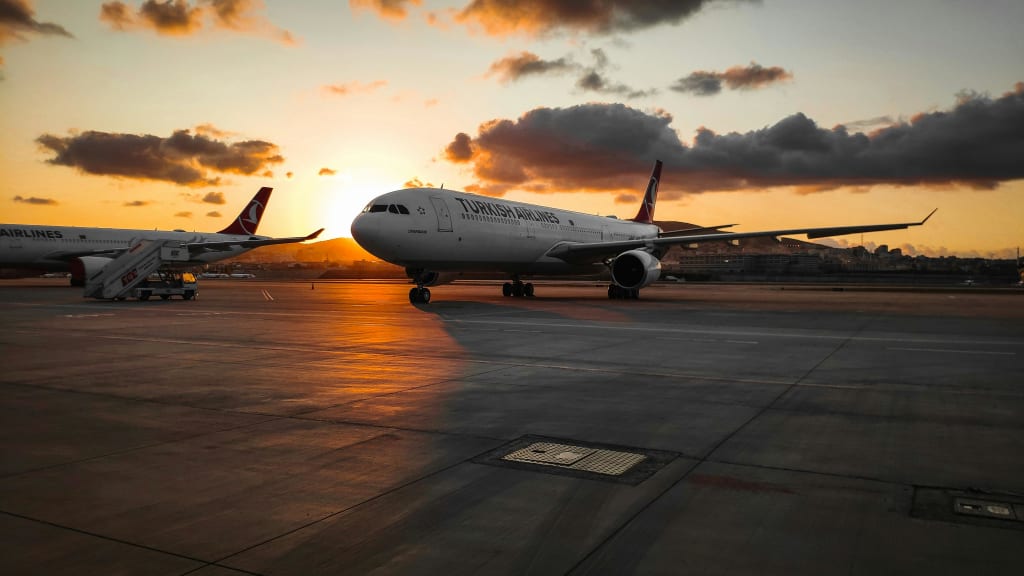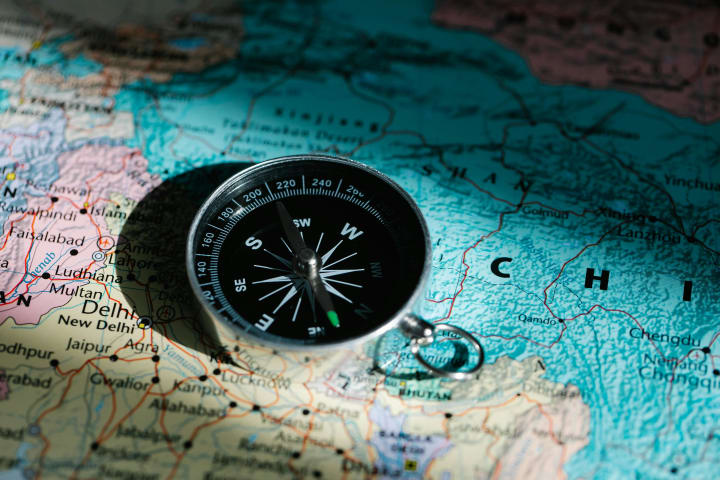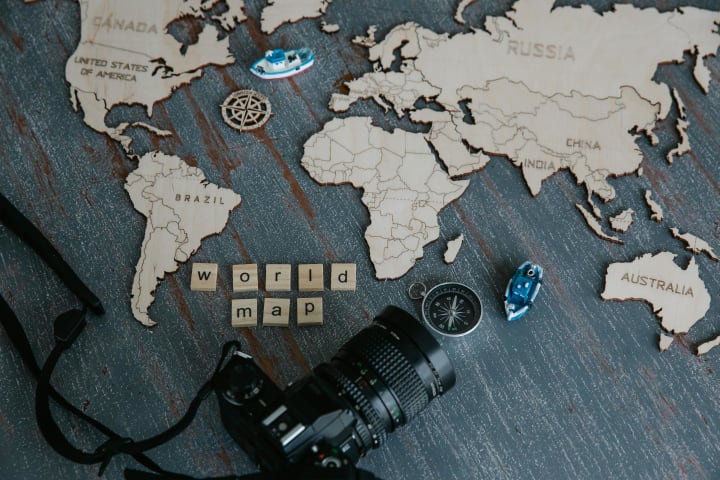The Ultimate Guide to Travel on a Budget in 2024
Your Blueprint for Unforgettable and Affordable Journeys

Welcome to the definitive guide for budget travel in 2024! As the world continues to open up post-pandemic, more and more people are eager to explore new destinations without breaking the bank. This guide is packed with tips, tricks, and insights to help you travel smart and save money.
1. Planning and Research
Setting Your Budget: The first step in any successful budget travel plan is setting a realistic budget. Calculate your total available funds and allocate portions for transportation, accommodation, food, activities, and emergencies. It’s helpful to use a budgeting app or a spreadsheet to keep track of your expenses.
Choosing Destinations: Not all destinations are created equal when it comes to cost. Research destinations that offer great value for money. Southeast Asia, Eastern Europe, and Central America are known for being budget-friendly while offering rich cultural experiences and beautiful scenery.
Seasonal Travel: Traveling during off-peak seasons can significantly reduce costs. Off-peak seasons vary by destination but generally, traveling just before or after the high season can offer better deals on flights, accommodations, and attractions. For example, Europe can be more affordable in the spring and fall, while Southeast Asia is cheaper during the rainy season.

2. Finding Affordable Flights
Comparison Websites: Leverage flight comparison websites like Skyscanner, Google Flights, and Kayak to find the best deals. Set up price alerts for your desired routes to be notified of any price drops.
Flexible Dates: If your schedule allows, being flexible with your travel dates can save you a lot of money. Use the "flexible dates" feature on flight search engines to compare prices on different days.
Budget Airlines: Budget airlines like Ryanair, EasyJet, and AirAsia offer low-cost flights. Be sure to read the fine print as these airlines often charge extra for luggage, seat selection, and onboard meals.
Booking Strategies: Book your flights at the right time. Generally, the best time to book domestic flights is between one to three months in advance, while international flights should be booked three to six months in advance. Avoid booking flights on weekends when prices tend to be higher.
3. Accommodations
Hostels and Guesthouses: Hostels aren’t just for young backpackers anymore. Many hostels offer private rooms and amenities similar to budget hotels but at a fraction of the cost. Websites like Hostelworld and Booking.com are great for finding affordable accommodations.
Airbnb and Couchsurfing: Airbnb offers a wide range of accommodations from shared rooms to entire homes. For a more immersive experience, consider Couchsurfing, where you can stay with locals for free. This not only saves money but also gives you a chance to make new friends and get insider tips.
Work Exchanges: Participate in work exchange programs like WWOOF (World Wide Opportunities on Organic Farms) or Workaway. These programs allow you to work a few hours a day in exchange for free room and board. It’s a great way to travel affordably and experience local culture.

4. Eating on a Budget
Local Markets and Street Food: Eating like a local is one of the best ways to save money on food. Visit local markets to buy fresh produce and try street food, which is often delicious and inexpensive. In places like Thailand, Vietnam, and Mexico, street food is both a cultural experience and a budget-friendly option.
Cooking Your Own Meals: If your accommodation has kitchen facilities, take advantage of them. Cooking your own meals can save a significant amount of money, especially in countries where eating out is expensive. Plus, it can be a fun way to experiment with local ingredients.
Meal Deals and Discounts: Look for restaurants that offer meal deals, lunch specials, or happy hours. Apps like TheFork and OpenTable often list dining discounts and promotions. Also, consider dining out for lunch instead of dinner, as lunch menus tend to be cheaper.

5. Getting Around
Public Transportation: Public transportation is usually the most economical way to get around. Research the public transit options available in your destination, whether it’s buses, trains, subways, or trams. Purchase day passes or multi-day passes for additional savings.
Walking and Biking: Exploring a city on foot or by bike is not only cost-effective but also allows you to see more of the area up close. Many cities offer bike rental services or bike-sharing programs. Apps like Citymapper can help you navigate on foot or by bike.
Carpooling and Rideshares: For longer distances, consider carpooling services like BlaBlaCar, which connects drivers with passengers headed in the same direction. Rideshare apps like Uber and Lyft can also be cheaper than traditional taxis, especially if you opt for shared rides.
6. Free and Low-Cost Activities
Free Attractions: Many destinations offer free attractions such as parks, museums (often with free entry days), historical sites, and public art installations. Do some research to find out what’s available for free in your destination.
City Passes: Invest in city passes that offer discounted or free entry to multiple attractions. These passes can also include public transportation and discounts at restaurants and shops. Popular city passes include the Paris Pass, New York CityPASS, and the Tokyo Metro Pass.
Local Events: Attend local events and festivals. Many are free and provide a great opportunity to experience local culture. Check community calendars or tourism websites for information on upcoming events.

7. Money-Saving Travel Tips
Travel Insurance: Travel insurance might seem like an unnecessary expense, but it can save you a lot of money in case of medical emergencies, trip cancellations, or lost baggage. Compare policies and choose one that fits your needs and budget.
Currency Exchange: Avoid exchanging money at airports or tourist spots where rates are usually poor. Instead, withdraw cash from local ATMs using a debit card with low foreign transaction fees. Alternatively, use travel credit cards that offer good exchange rates and no foreign transaction fees.
Loyalty Programs and Discounts: Sign up for loyalty programs offered by airlines, hotels, and car rental companies. Accumulate points and enjoy benefits like free flights, room upgrades, and discounts. Also, look for discounts available to students, seniors, or large groups. Websites like ISIC and AARP can provide information on available discounts.

Conclusion
Traveling on a budget doesn’t mean missing out on incredible experiences. With careful planning, flexibility, and a bit of creativity, you can explore the world without breaking the bank. Follow this ultimate guide to budget travel in 2024 and make your travel dreams come true! Happy travels!
About the Creator
Raja Trends
Here, my friends get important updates and interesting stories to catch everything you will need. To get important article notifications and updates. Please Subscribe to Motivate me to Upload High-Quality content and articles.
Enjoyed the story? Support the Creator.
Subscribe for free to receive all their stories in your feed. You could also pledge your support or give them a one-off tip, letting them know you appreciate their work.






Comments
There are no comments for this story
Be the first to respond and start the conversation.